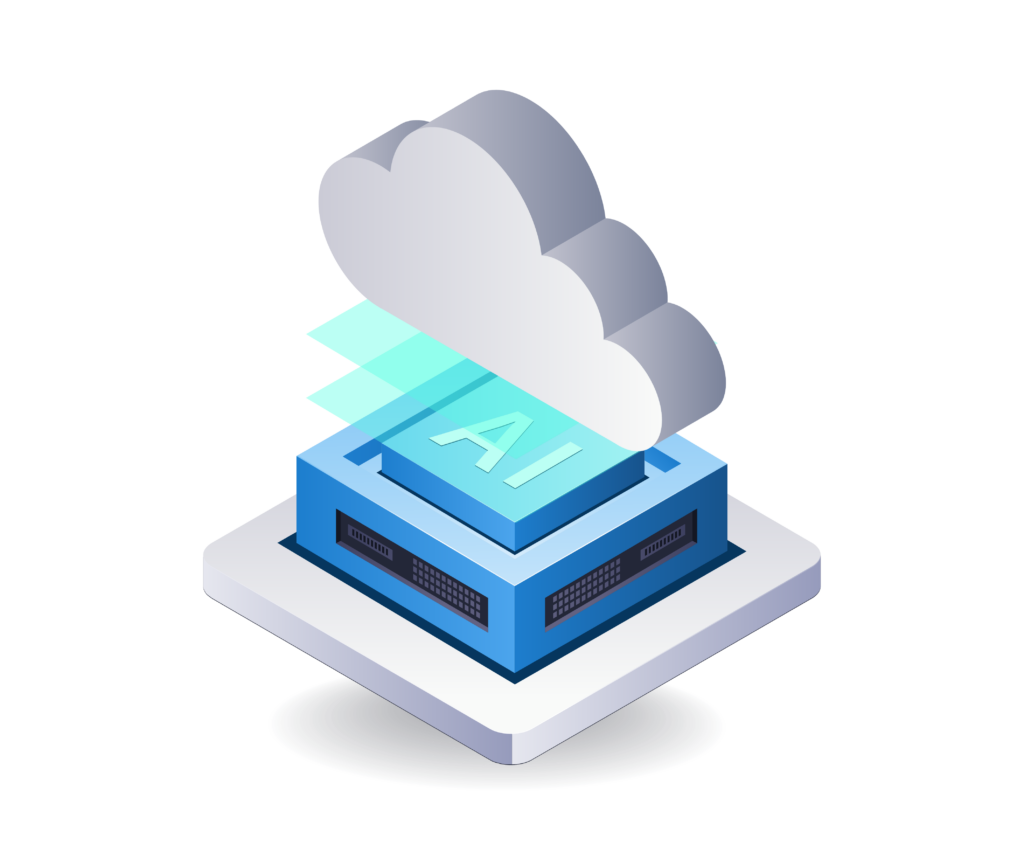2024 in Review: Pivotal Trends Reshaping Software Development
Software Development Trends in 2024 – A Retrospective
As we approach the end of 2024, it’s a perfect time to take a step back and reflect on the software development trends that have shaped this year. It has been a period of immense innovation and evolution, where technology pushed boundaries, and industries embraced new solutions with open arms. This retrospective will look at the major trends that dominated 2024 and, looking ahead, consider the trends that are likely to define 2025. At 4mation, we’re excited about what these shifts mean for the future of software development and for how we can support businesses through their technology journey.
The Rise of Generative AI in Software Development
2024 was undeniably the year generative AI stepped into the software development spotlight. From coding assistance to automated testing, generative AI transformed the development landscape. Developers across the world have embraced tools powered by AI models, including OpenAI’s GPT-4, Google’s Gemini, Meta’s Llama and others, that can write and refactor code, suggest improvements, and even help debug issues in a matter of seconds. These AI tools bridged skill gaps, shortened development cycles, and enabled smaller teams to achieve more with less.
Generative AI has not only redefined productivity but has also democratised development. With AI assistants becoming more accessible, those with minimal coding experience have been able to create functional applications, helping organisations overcome the challenges of developer scarcity. It has empowered startups, established companies, and enterprises to innovate at a rapid pace without needing expansive software teams.
Our team at 4mation has been at the forefront of adopting and implementing AI solutions for our clients. Whether it’s using AI to optimise software testing or leveraging it for developing proof-of-concept applications, we have seen firsthand how these tools enhance efficiency. Our Agile Innovation Package (AIP) enables clients to flexibly adjust their project hours. This allows experimentation with cutting-edge technologies like generative AI, ultimately transforming how businesses build and innovate with software.
Low-Code and No-Code Platforms Continue to Rise
Low-code and no-code platforms have become an integral part of the development ecosystem in 2024. These platforms allow non-technical users to build applications using simple drag-and-drop interfaces, bridging the gap between business requirements and technology implementation. The emphasis on empowering users without deep coding knowledge has become a vital part of the software landscape this year, enabling companies to reduce the burden on development teams and bring digital transformation initiatives to life faster.
In 2024, businesses sought agility. The pressure to adapt to ever-changing customer needs meant that traditional, time-consuming software development processes were no longer feasible for many. Low-code and no-code platforms offered a solution, allowing rapid prototyping, shorter feedback loops, and, ultimately, quicker time-to-market. From customer relationship management (CRM) applications to internal workflow tools, organisations used these platforms to streamline operations and become more resilient.
The 4mation team assists clients in making sense of the myriad low-code and no-code options available and strategically implement them in a way that aligns with their business goals. We recognise that these platforms do not replace traditional software development but rather enhance it. By combining the flexibility of custom code with the rapid deployment capabilities of low-code tools, we enable organisations to achieve scalable solutions tailored to their specific needs.
The Maturing of Cloud-Native Technologies
2024 also saw a surge in the adoption of cloud-native technologies. As businesses continued to migrate their infrastructure to the cloud, the benefits of cloud-native development, including scalability, resilience, and cost efficiency, became more apparent. Kubernetes, serverless computing, and microservices architectures were at the forefront, empowering organisations to build applications that are easily scalable, maintainable, and robust.
Organisations increasingly moved beyond merely using the cloud for hosting and started designing applications from the ground up to be cloud-native. This trend allowed them to harness the full power of distributed computing, which was particularly important for companies experiencing rapid growth or fluctuating user demand. The shift towards cloud-native has changed the game for application reliability, allowing automatic scaling to meet demand peaks without investing heavily in physical infrastructure.
4mation has supported numerous clients in their cloud transformation journeys. As an AWS accredited consulting partner, we provide expertise in developing cloud-native applications, managing Kubernetes clusters, and creating serverless architectures. Our goal is to help our clients leverage cloud technologies to achieve optimal scalability and cost efficiency, while ensuring their applications remain secure and high-performing.

AI-Powered Testing and Quality Assurance
Quality assurance (QA) in software development reached new heights in 2024, driven by AI-powered testing tools. As applications have become more complex, the need for efficient and reliable testing methods has grown. AI has stepped in to automate significant portions of the testing process, from generating test cases to identifying anomalies in codebases and predicting potential points of failure.
AI-powered testing tools have made continuous integration and continuous delivery (CI/CD) pipelines more robust, allowing faster deployments without sacrificing quality. This trend reduced manual testing requirements and freed up QA teams to focus on critical exploratory testing that truly enhances user experiences. Moreover, predictive analytics enabled developers to address potential bugs before they affected end-users, significantly improving software reliability.
Our approach to QA at 4mation integrates AI-powered tools to ensure that applications are delivered bug-free and meet the highest quality standards. We work with clients to build intelligent CI/CD pipelines that integrate AI for continuous testing, allowing us to accelerate time-to-market while maintaining quality—ultimately delivering value faster and with more reliability.
The Security Imperative: DevSecOps and AI in Cybersecurity
In 2024, security became more critical than ever. With the increasing sophistication of cyber threats, integrating security throughout the software development lifecycle has become a non-negotiable priority. The rise of DevSecOps, where security is built into every stage of the development process, was a major trend this year. By shifting left and incorporating security measures early, companies mitigated vulnerabilities before they became critical issues.
AI also played a substantial role in enhancing cybersecurity in 2024. AI algorithms were used to detect anomalies, flag suspicious activity, and predict potential breaches before they happened. These tools became especially important for protecting sensitive user data, which is crucial for maintaining user trust and compliance with regulations.
We understand that security is at the core of every successful software project. Our team employs best practices from DevSecOps to ensure that security is embedded in the development process from day one. We help clients leverage AI-based security solutions to safeguard their applications and data, giving them peace of mind that their digital assets are protected against evolving threats.
Trends & Technologies to Watch in 2025
Looking ahead to 2025, several emerging trends are poised to shape the future of software development. One of the most anticipated shifts is the widespread adoption of quantum computing. While still in its early stages, quantum computing is expected to begin impacting niche areas, particularly in complex problem-solving and cryptography. Developers may soon need to understand quantum algorithms, pushing the boundaries of what’s computationally possible.
Another trend that seems likely to grow in 2025 is the increased focus on AI ethics and responsible AI development. As generative AI tools become more integrated into software development, concerns around bias, transparency, and ethical considerations will take centre stage. Companies will need to create frameworks that ensure AI tools are used responsibly, and at 4mation, we are prepared to help our clients navigate this evolving landscape by building ethical, sustainable AI solutions.
Lastly, augmented reality (AR) and virtual reality (VR) are expected to make significant inroads into mainstream applications. Beyond gaming, AR and VR have the potential to transform sectors such as healthcare, education, and real estate. 2025 could very well be the year we see AR interfaces become an everyday tool in business applications, blurring the lines between the physical and digital worlds.
We at 4mation are excited about these upcoming developments and are ready to help our clients harness these technologies to gain a competitive edge. Our approach is rooted in helping businesses experiment, innovate, and ultimately thrive by taking advantage of the latest technological advances—from AI and cloud computing to quantum possibilities and immersive technologies.

Conclusion: The Path Forward
2024 has been an incredible year for software development, marked by significant advances in generative AI, low-code platforms, cloud-native technologies, AI-powered testing, and cybersecurity. These trends have redefined how we build software, breaking down barriers, and setting new standards for efficiency, quality, and security.
As we move into 2025, the software landscape will continue to evolve, and businesses that embrace these changes will be better positioned for success. At 4mation, we’re committed to partnering with our clients on their journey—whether it’s adopting new AI tools, transforming their cloud infrastructure, or embedding security into their development lifecycle. Together, we can navigate the ever-changing technology landscape and create solutions that drive business growth and innovation.
If you’re looking for the right technology partner to boost your technology in 2025 and beyond feel free to book a free consultation.

